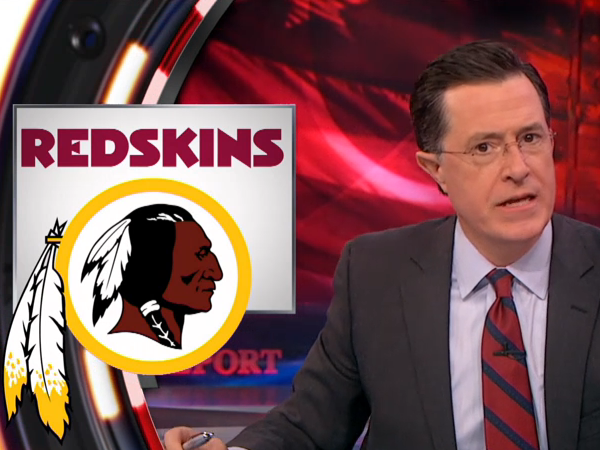Jezebel Article About Twitter Reveals a Fundamental Misunderstanding of Twitter

Jezebel writer Erin Gloria Ryan responded to the #CancelColbert phenomenon with a lengthy, snarky takedown of generally everyone on twitter. I'm thinking she got it a little bit wrong: She should have been taking down the social media intern who sent out the tweet.
(Yes, I know that not everyone who sends out disastrous tweets for major corporations is a social media intern. Some of them consider themselves marketing professionals, but calling them interns is just funnier.)
She sort of chastises everyone on the internet, over and over, with a lesson on how twitter works. She spends a lot of time telling us all just how badly we've misunderstood the situation, and how it's our own fault:
To be fair, if you're misunderstanding things on the internet it is actually your own fault, but expecting people not to misunderstand things on the internet is itself a much bigger misunderstanding of things on the internet.
Twitter is not a place of deep, thoughtful discourse and understanding. It's a place of instant parrotry, vague interpretations, misquotes and twisted meanings. And, notably, it's increasingly a place of outrage, ignorance and hate.
It's important to know that anything you put into that milieu, no matter how smart or meaningful, probably won't go beyond your own sphere of followers until it pisses people off. Knowing that there are masses of people outside of your own sphere who are just waiting to be pissed off is also important, as is knowing that many of them are more into being pissed off than they're into knowing what's actually going on.
She advises us to "bark up the right tree," yet she herself is seeking change along a path of infinite resistance. Bad idea to try and enlighten everyone on twitter. Better idea to speak to every social media intern. That's a much smaller demographic and it's easier to reach. It's also probably more eager for guidance.
Not that the goal of social media workers is anything other than getting attention, but they do realize the difference between good attention and bad attention. They just don't always realize which one they're asking for, and those of us who've been hands-deep in the net long enough to figure that out are in a good position to help.
We can start by telling them about the language of twitter, which goes beyond being just a language of words. It's more like a practiced, premeditated and complicated dialect. You speak it the same way you make moves in chess: You have to anticipate the other guy's next three moves before you make your own. (Only, with the internet, there are a billion other guys to account for.)
Good twitter language is a language of nuance and precision. Even more, it's a language of foresight. You've got to figure out how to cram meaning into a very limited character count and you've got to predict the possible meanings uninformed strangers will take from what you've said.
A successful tweet only takes a second or two to read, but it takes much longer to compose and longer still to review before you hit send. If you don't put the forethought in, I don't think you can be too hard on people when they "miss the fucking point," as Erin Gloria Ryan so succinctly puts it. Once you put it out there, you've no control over where it goes. Until that point, though, you can limit its possible paths.
Those of us in a position to disseminate our ideas on the internet are better served by putting this message out to the social media interns of the world, rather than telling everyone else how stupid they are for misunderstanding a short quip that came their way without any context.
I mean, we gotta work on the rest of the world too, but let's deal with our own while we're at it.